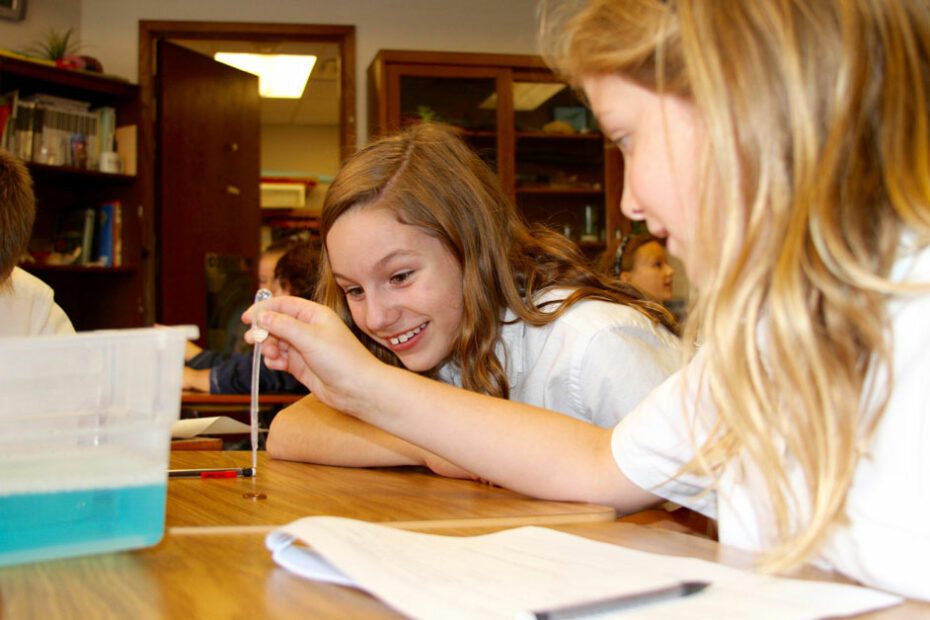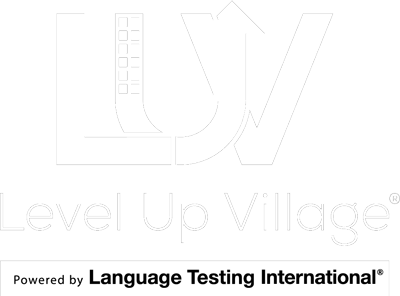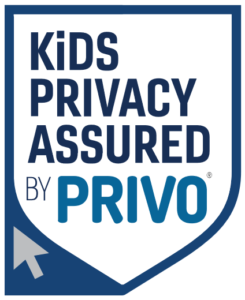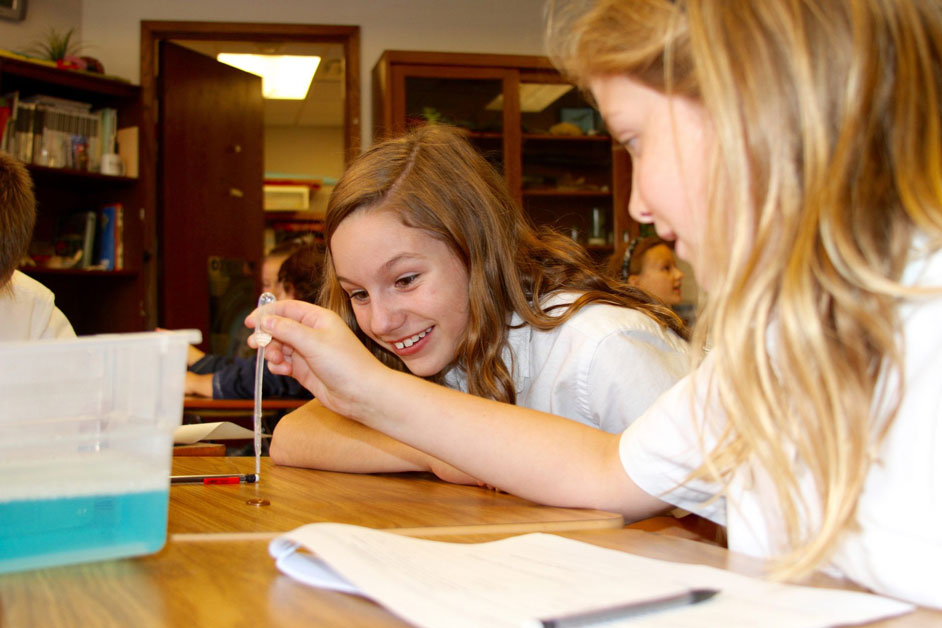
These students at The Episcopal School of Dallas conduct an experiment in Global Scientists, a Level Up Village course that focuses on water chemistry and the global water crisis. The course was offered during the school day to all fifth graders as a supplement to science teacher Ellen Neill’s natural resource unit. | Global Connections in the Science Classroom
Kids these days are eager to make a difference in the world. Educators can tap into this marvelous impulse by providing real-world learning opportunities in the science classroom. This fall, The Episcopal School of Dallas (ESD) offered Global Scientists to fifth grade students in order to introduce students to water chemistry and the global water crisis. To make it even more interesting, students were connected virtually with partners in Uganda. Here are four strategies ESD used to create an impactful, real-world learning experience with Global Scientists:
- Make it Accessible
After hearing about Level Up Village at an educational conference last summer, Episcopal School of Dallas decided to offer Global Scientists to the entire fifth grade during the school day. Taught by veteran science teacher Ellen Neill as a supplement to her Natural Resources unit, these “Global Scientists” met every day over a two-week period. This condensed delivery of the course allowed students to truly become immersed in the subject. Through a variety of multimedia resources and hands-on experiments, they learned in a tangible way how groundwater becomes polluted, how to filter and purify water, methods used in water conservation and more.
- Make it Meaningful
Using Level Up Village’s global communication platform, students exchanged video messages with partner students at Gayaza High School in Uganda, who were following the same curriculum and doing the exact same experiments in their own classroom. This common experience allowed them to share their findings with each other and discuss possible solutions to the global water crisis.
“The most meaningful part of the course was hearing my students talk about the conversations they had with the Ugandan students. They came in every day asking if they could log on and see if they had a reply from their partners,” said Neill. “They also were very concerned that the girls did not have enough water. This led us to have many important discussions in class.”
“The one area that really got to them was how the students in Uganda have tanks and have to save the water in reservoirs. One girl told our students about having to wash clothes in the same lake that the animals use,” added Neill.
Hearing these stories firsthand prompted ESD students to reflect more deeply on the role of water in their daily lives.
“The students and I became more aware of how we need to be more conserving of our natural resources,” said Neill. “Even though we have plenty of clean water and can turn a faucet on at any time, we still need to conserve water.”
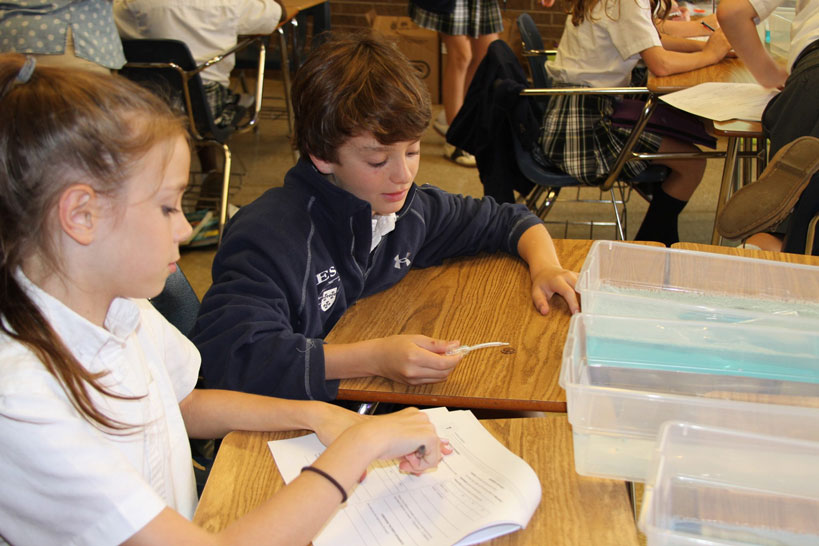
ESD students were struck by the fact that their Ugandan partners had to save water in tanks and wash clothes in the same lake that the animals use. As a result, they became much more aware of the need to conserve water.
- Find Common Ground
As part of their global exchange, students were encouraged to ask questions about each other’s daily lives. This direct communication with students from another culture prompted students to not only recognize their differences, but more importantly, realize how much they had in common.
“It was an amazing experience for the students here at ESD,” said Neill. “They learned that even though they are far from us, we still share some of the same things. They loved talking to the girls about their favorite music, movies, and their favorite foods. They would come tell me stories: ‘Ms.Neill, our partner likes the same kind of music as we do! or ‘She loves hamburgers and french fries!’”
- Give Back
By participating in the Level Up Village course, The Episcopal School of Dallas also directly supported STEAM education for their Ugandan partners through LUV’s “Take a Class, Give a Class” model.
“One of our Founding Tenets is service. This was not only an incredible project for the students to learn science, but also for us to give back by donating the same course, including supplies, to Uganda,” said Neill. “Sometimes our students are sheltered from how others in the world live and we want to expose them to that so that we open up their eyes to issues and they can learn to help. We believe service should be somethings ingrained into daily life and this project helped that effort.”
Neill also said she would be interested in enriching her science curriculum with another Level Up Village course in the future, but next time, for a longer period of time.
“This was an experience that my students and I will never forget,” she said.
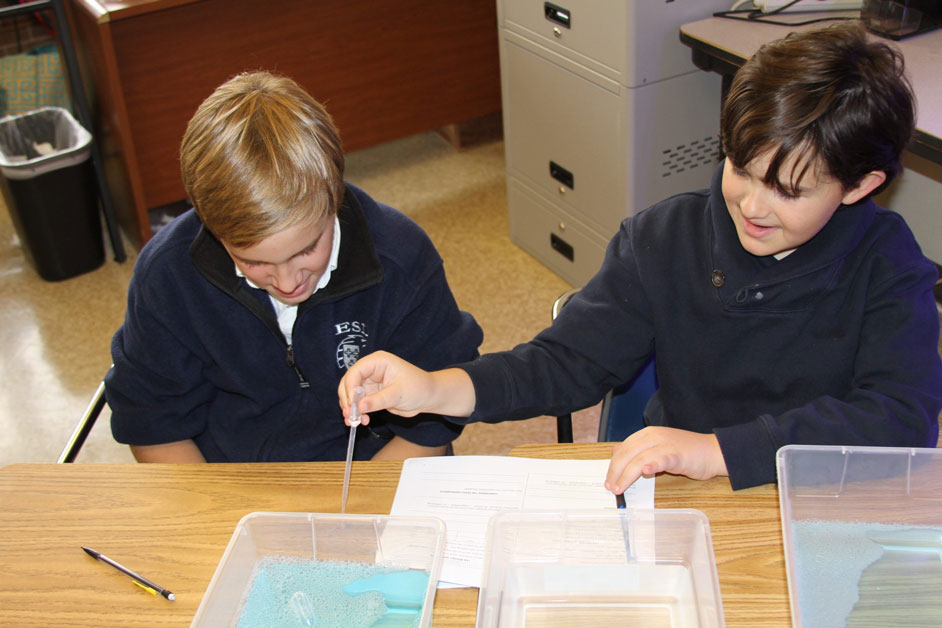
By taking Global Scientists with Level Up Village, ESD sponsored STEAM education in the developing world through LUV’s “Take a Class, Give a Class” model.

